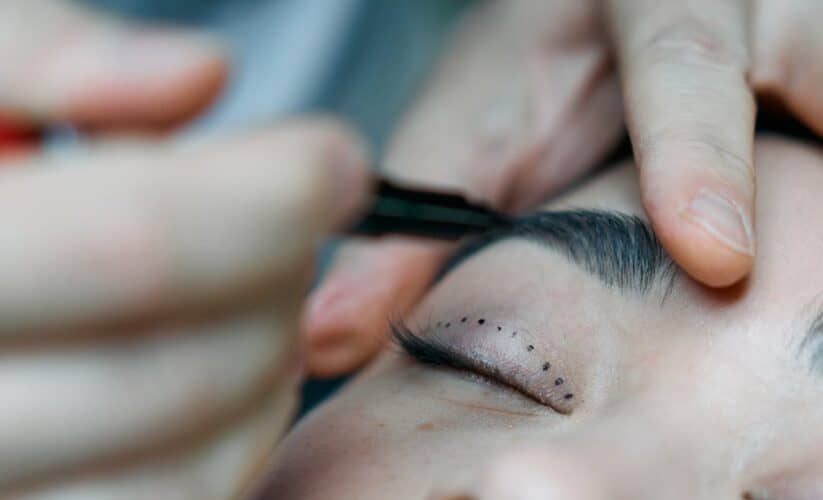
A Step-by-Step Guide to Preparing for Plastic Surgery
Preparing for plastic surgery involves more than just scheduling an appointment and showing up. It requires careful planning, research, and a clear understanding of your goals.
This guide will walk you through the essential steps to take before your procedure, helping you approach your surgery with confidence and clarity.
Research Your Procedure
Before anything else, it’s essential to familiarize yourself with the specific type of surgery you’re considering. Different procedures come with varying risks, recovery times, and expected outcomes. For instance, if you’re contemplating a facelift, understand the techniques involved, the recovery timeline, and potential complications.
Look for reputable sources, including medical journals, articles from board-certified surgeons, and reviews from patients who have undergone similar surgeries. Knowledge is power, and being well-informed allows you to make decisions that align with your expectations.
Consult with Qualified Surgeons
Finding the right surgeon is perhaps one of the most critical steps in your preparation. Look for board-certified plastic surgeons with extensive experience in the specific procedure you desire. A personal recommendation can be helpful, but be sure to conduct independent research as well.
Once you have a shortlist, schedule consultations. During your meetings, don’t hesitate to ask questions about their credentials, experience, and past patient outcomes. Pay attention to their communication style—it’s vital that you feel comfortable discussing your goals and concerns. A good surgeon will listen attentively and provide clear answers.
Understand the Costs Involved
Plastic surgery can be a significant financial commitment. It’s wise to grasp all the costs associated with your procedure, including the surgeon’s fee, anesthesia, facility charges, and any necessary post-operative care. Some practices offer financing options, so inquire about available payment plans if the costs seem daunting.
Be cautious of prices that seem too good to be true. When it comes to surgery, quality and safety should take precedence over finding the cheapest option. Balancing your budget with the best care possible is essential for your peace of mind.
Prepare for a Healthy Lifestyle
In the weeks leading up to your surgery, adopting a healthier lifestyle can positively impact your recovery. Focus on balanced nutrition, staying hydrated, and engaging in regular, moderate exercise. Avoiding tobacco and limiting alcohol consumption is crucial, as these habits can impede healing and increase risks during surgery.
Consider adding supplements like vitamins C and E, which may help with wound healing, but always discuss any supplements with your surgeon to ensure they won’t interfere with anesthesia or recovery.
Arrange for Support
Planning for post-surgery support is vital. Most procedures require a recovery period where you may have limited mobility or need assistance with daily tasks. Enlist a friend or family member to help you during this time, especially for the first few days after the operation.
Having someone to drive you home after the procedure is equally important, as most surgeries will leave you unable to operate a vehicle due to anesthesia effects. This simple step ensures you have a safe transition from the clinic to your home.
Follow Pre-Operative Instructions

Your surgeon will provide specific instructions to follow in the days leading up to your surgery. These guidelines may include dietary restrictions, medications to avoid, and other crucial preparations. It’s essential to adhere strictly to these instructions to minimize risks on the day of surgery.
For instance, you may be asked to stop taking certain medications, like blood thinners or anti-inflammatory drugs, which can increase bleeding. Ignoring these recommendations could lead to complications or delays in your procedure.
Prepare Your Home for Recovery
Creating a comfortable and accessible space for your recovery can significantly improve your experience. Consider stocking up on food and essential supplies in advance, so you don’t need to run errands shortly after your surgery.
Set up a cozy recovery area where you can rest easily. Arrange pillows, blankets, entertainment options, and any necessary medical supplies within arm’s reach. This preparation makes the recovery process smoother and more manageable.
Plan for Time Off Work
Depending on the surgery’s nature, you may need to take a break from work. Discuss your procedure with your employer, if comfortable, and determine how much time you’ll need to recover. Some surgeries may require only a few days off, while others could necessitate weeks of recovery.
Consider your workload and plan accordingly, ensuring that your responsibilities are covered during your absence. This foresight helps alleviate stress as you focus on healing.
Mental Preparation and Realistic Expectations
Plastic surgery can bring about significant changes, both physically and emotionally. Spend some time reflecting on your motivations and expectations. It’s vital to have a realistic view of what can be achieved through surgery.
Discuss your thoughts with your surgeon, who can provide clarity about what results you might expect. A candid conversation can set you on the path to satisfaction with your outcome. Mental preparation is just as important as the physical aspects of your surgery.
Addressing Anxiety and Concerns
Feeling anxious about surgery is completely normal. If you find yourself overwhelmed by nervousness, consider speaking with a mental health professional who can help you process your emotions. Techniques like deep breathing, meditation, or visualization can also ease anxiety and promote relaxation.
Many patients find that discussing their worries with their surgeon can be comforting. Your surgeon may have encountered many patients with similar feelings and can offer reassurance or strategies to help calm your nerves.
Final Pre-Operative Checklist
As your surgery date approaches, create a final checklist to ensure you’ve covered all your bases. Confirm the date and time of your surgery with your surgeon’s office, review pre-operative instructions, and double-check your support arrangements.
Prepare a bag with essentials to take to the surgery center, including insurance information, any necessary medical records, and a list of medications you’re currently taking. Being organized will help alleviate last-minute stress.
Post-Operative Planning
While most of your focus may be on the days leading up to surgery, it’s wise to think ahead regarding your post-operative care. Follow your surgeon’s aftercare instructions diligently, including how to manage pain and when to schedule follow-up appointments.
Set aside time for your body to heal properly. Rushing back into regular activities or ignoring your recovery needs can lead to complications and prolong your healing process.
By carefully considering each of these steps, you can pave the way for a successful plastic surgery experience. This preparation not only enhances your physical results but also contributes to your overall emotional well-being as you navigate this personal journey.





